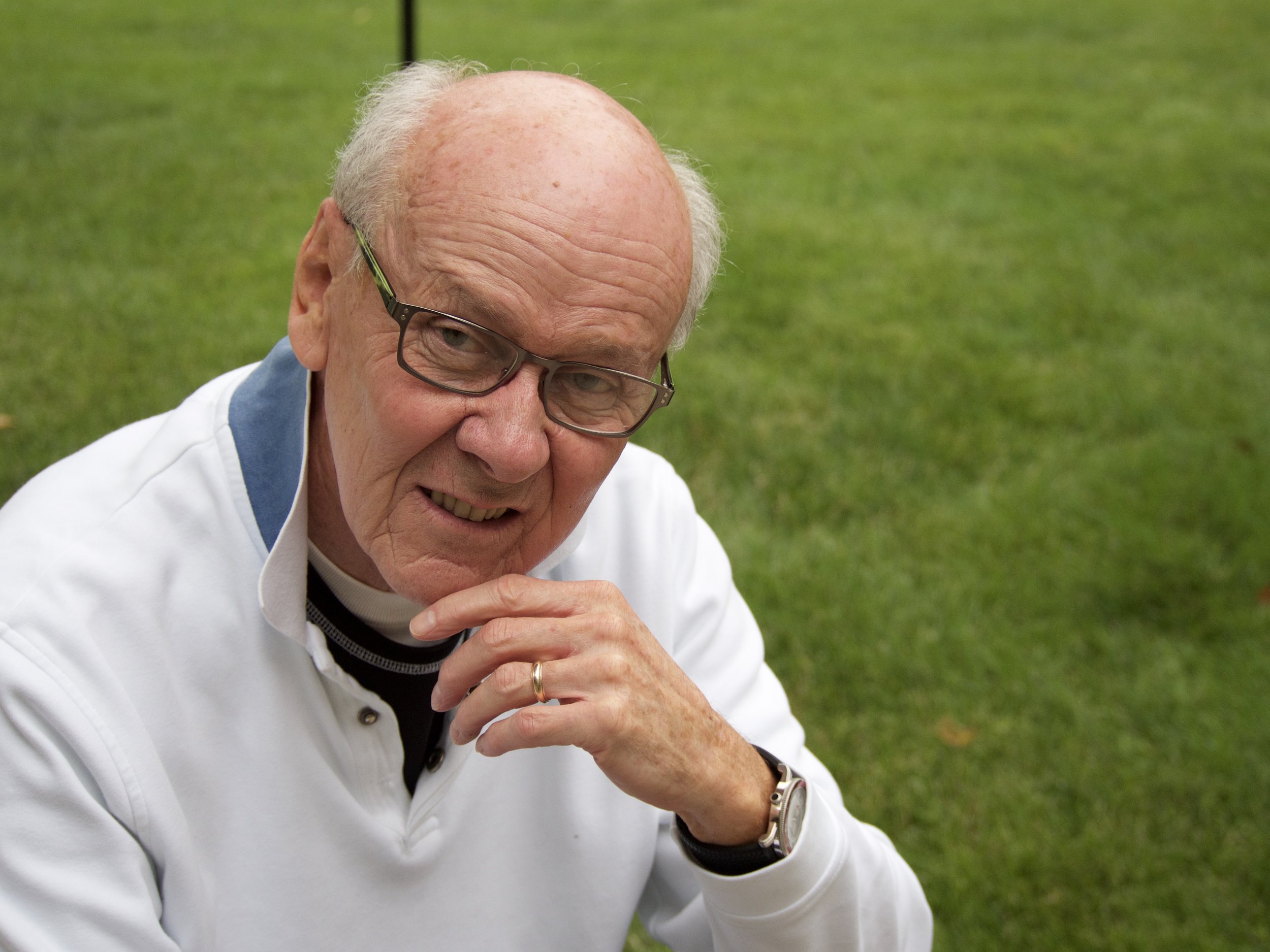It was Iowa City, Iowa, 1965. I was a senior at the University of Iowa. The women's movement was in full swing. It was in your face, often militant and determined. Betty Friedan's book, THE FEMININE MYSTIQUE was on the news stands and a must read for most women. It was one of my text books. I was walking on campus and about to enter Osco Drugs which was a popular store right across the street from the Pentacrest. Out of the corner of my eye I could see a female student coming towards me about to enter Osco's. I could see that her legs were unshaven and she had no bra on. Typical on campus at that time. I stopped, held the door open out of courtesy and she stopped dead in her tracks. She looked at me and said clearly, "FUCK YOU!". While stunned, I knew what this meant and I went on in to Oscos.
That wasn't my introduction to the woman's movement, but it was a stunner. And it is something I have never forgotten. Whether it be racism, sexism or the recent accomplishments of the LGBT community, all minorities have had to fight for their place. And the fight was on. Little did I know how some of the results would effect me professionally as the years would pass by.
When I began practicing psychotherapy in 1971 perhaps 10% of my patients were male. Today, I see more men than women most months. Perhaps 52% to 48% approximately. With each decade I have practiced, the gender roles have changed. And it has had a huge impact on the institution of marriage. In my opinion these changes have been positive. Yet the results at times have most likely led to more divorces and hopefully fewer marriages of convenience. I will let others judge whether that is good or bad. But is a fact.
The woman's movement has led to financial independence. Women literally do not need a man in their life as they once did. Women are less likely to tolerate verbal abuse, marital rape, being the only one in charge of the home and all the work and responsibilities that go with it. They take more ownership of their bodies and no longer prostitute themselves in order to keep peace or avoid abuse. Now some women actually generate more income than their spouse. The list of changes goes on and on. And I haven't even mentioned the support women now enjoy with other woman as a result of working outside the home and of course social media like Facebook and Twitter. And this has led to women being as likely as men to have an affair. It's only fair. If you don't know what I mean by that watch MAD MEN.
Of course any movement and any change brings with it side effects. Some are negative. Some are unanticipated. And the woman's movement is no different. But rarely do I see any negative effects that over-ride the incredible improvements that have come about for women AND for men as a result of this movement. But I do see where men have had to adjust and are still adjusting. While going to college I worked at a grocery store, much like Hy-Vee. Rarely would I see a man pushing a cart filled with groceries and a child or two without his wife. Now it is common place. Men are much more engaged with childrearing. There is far more co-parenting. Men play a much more significant role in their children's lives. And women are simply less willing to put up with abuse or control by their husbands. Is it perfect? Far from it. Wages, treatment in the work place, and domestic violence and other forms of violence against women remain. All minorities struggle with those who have not been able to adapt to changes. But the fact remains that it is better for everyone.
What I see in my office are often those individuals who have not been able to adapt or change. Both women and men still can struggle with each other as they try to each find their place and reconcile their differences and create a viable long term monogamous relationship. I wish to focus on what those couples seem to struggle with most.
Pat Love, Ed.D, has spoken and written of the the neuro-biology of love and its profound impact on that early period of a relationship which we so often refer to as infatuation. This is a Darwinian aspect of our species' need to procreate. It evolved into place to draw us together and to insure that our species propagates. It involves a rather complex cocktail that is set off in our brains when we meet someone that might become a romantic partner. This cocktail of neuro-chemicals is powerful and is capable of over riding logical, intelligent thoughts. Thus once it is set off we are vulnerable to not picking up red flags and not using good judgment even in the face of obvious warning signs that danger lurks. I see this every single day with my clients. I will ask them, "were these things happening before you got married?". I'm referring to things like his drinking, her rage, his anger, her control, etc, etc... Virtually ever time I will be told they were in fact there before they got married. Yet they went ahead with the marriage.
This neuro-chemical cocktail and it's influence on our judgment lasts about 20 months or so. Good studies have shown this to be the case. It is a bit different than "good chemistry" between people but is similar. But it is not LOVE. It is not something we should listen to exclusively. It's wonderful, and arousing and movies and music have institutionalized it, but it is just not true love. It is something we should be aware of and be careful of. It can be so seductive. Yet it is an important part of any good relationship. It's not bad if we are aware of it and if we factor that into the experience of a new relationship. It's actually something to behold. To be in awe of. It is a magnificent part of our evolutionary brain.
But then you might ask, how do we know what's love and whether this is the person for me? No one can answer that with certainty. All we can do is position ourselves to where we reduce the risk of making a bad choice. And the first step in that is taking the time to find out who this person REALLY is. And that takes time. Not only time in the sense of how long the courtship lasts, but how much continuous time we spend with each other during that courtship. And here is where some of you might disagree with me. Be it religious or moral reasons, I can appreciate why some might argue against living together before marriage. But that is exactly what I would recommend to anyone. That in itself begins to make things real. One can fake it for an evening, an over night or a long weekend. But not for six months or more. It is by being with each other 24/7 that we begin to see, hear, feel and experience what and who this person really is and how one truly feels about that "whole" person. On every level; sexual, emotional or behavioral we begin to see who this person is and how we then feel about the different sides.. Bad behavior can be hidden from view for short periods of time, but not for months at a time. Drinking, anger, jealously, control.............so many things begin to surface if they are in fact actually there in the first place but hidden by someone who doesn't what you to notice.
Time is but a partial way of knowing who this person is and how one does feel about them. Time will help quiet that chemical cocktail allowing one to notice red flags if they re there. As the intensity of the sexual attraction settles down a bit, ones rational self might then allow them to actually see the real person. Time will allow one to experience that persons extended family. That will tell us a ton. And watching their relatiopnship with their parents, siblings and other family members will tell one much that they need to know about what that persons issues might be. Anyone who thinks we are not products of our environment is kidding themselves. Our partners attitudes, feelings and future behavior will be so influenced by the nature of their relationship with their opposite parent. And our partners self worth, self esteem, self image will be so influenced by their same sex parent. We need to take that information in as it comes to us and factor it in as to whether this person is capable of the kind of relationship we are seeking. How one feels about the opposite sex will be strongly influenced by how they feel about their opposite sex parent. How that person treated them. How they saw that person interact with their partner.
Loving someone isn't enough. And we need to quite thinking that love is a feeling. It is not. It' a verb. Chemistry is very important. We must have some attraction and experience a good sexual attraction and response to our partner. But that cannot be all. And the chemistry can be confusing. How much is it just sexual. And sexual attraction fades over time. It waxes an wanes. And so it has to be more than that. True chemistry however can last a lifetime. It is more than just sex. But don't ask me to define it any more clearly than I have. It just is. It's like one of the Supreme Court Justices said (I think) when asked to define pornography. "I don't know how to describe it, I just know it when I see it". Chemistry is like that. Hard to define, but one knows it when they experience it. Just be careful tho when you see it. I also looks like sex. And sexual attraction won't take us very far.
To summarize what I am saying, and this discussion is far from over, let me note that because our brains can betray us into thinking we are "in love" by the rush of feelings initial attraction will produce, we need to be cautious of those feelings, take the time to truly find out what we need to know about this person and then pay attention to the red flags as they appear, check them out and be capable of leaving a relationship if we need to. It is amazing how many people have told me they knew on their wedding day that they shouldn't be getting married to this person. And too many others didn't know on their wedding day that they shouldn't marry this person.
Next time I will look at what it is about US that causes us to ignore the red flags. What allows us to repeatedly seek out and often marry people who are not good for us. I will examine what we get out of being with someone who treats us poorly. And why we avoid people who could be good for us.












